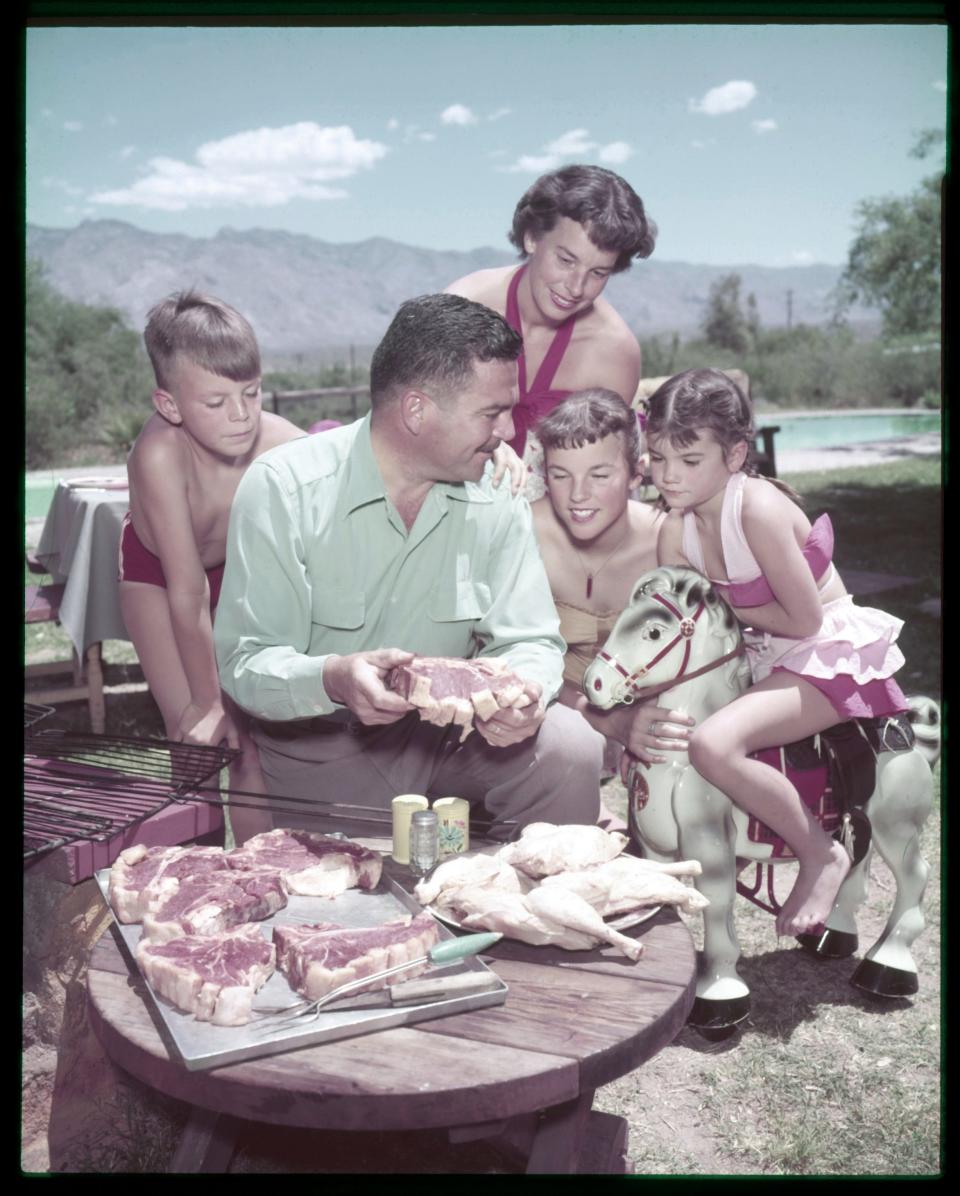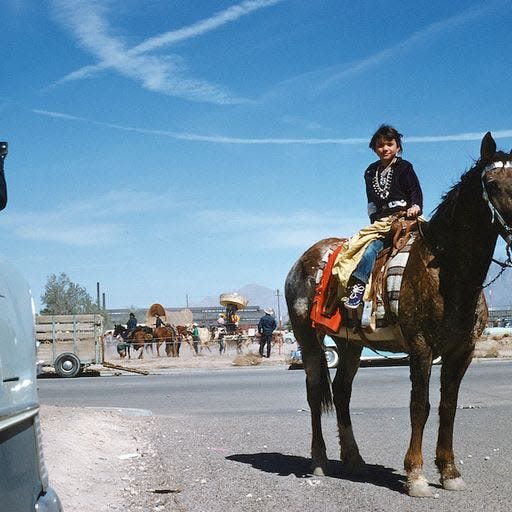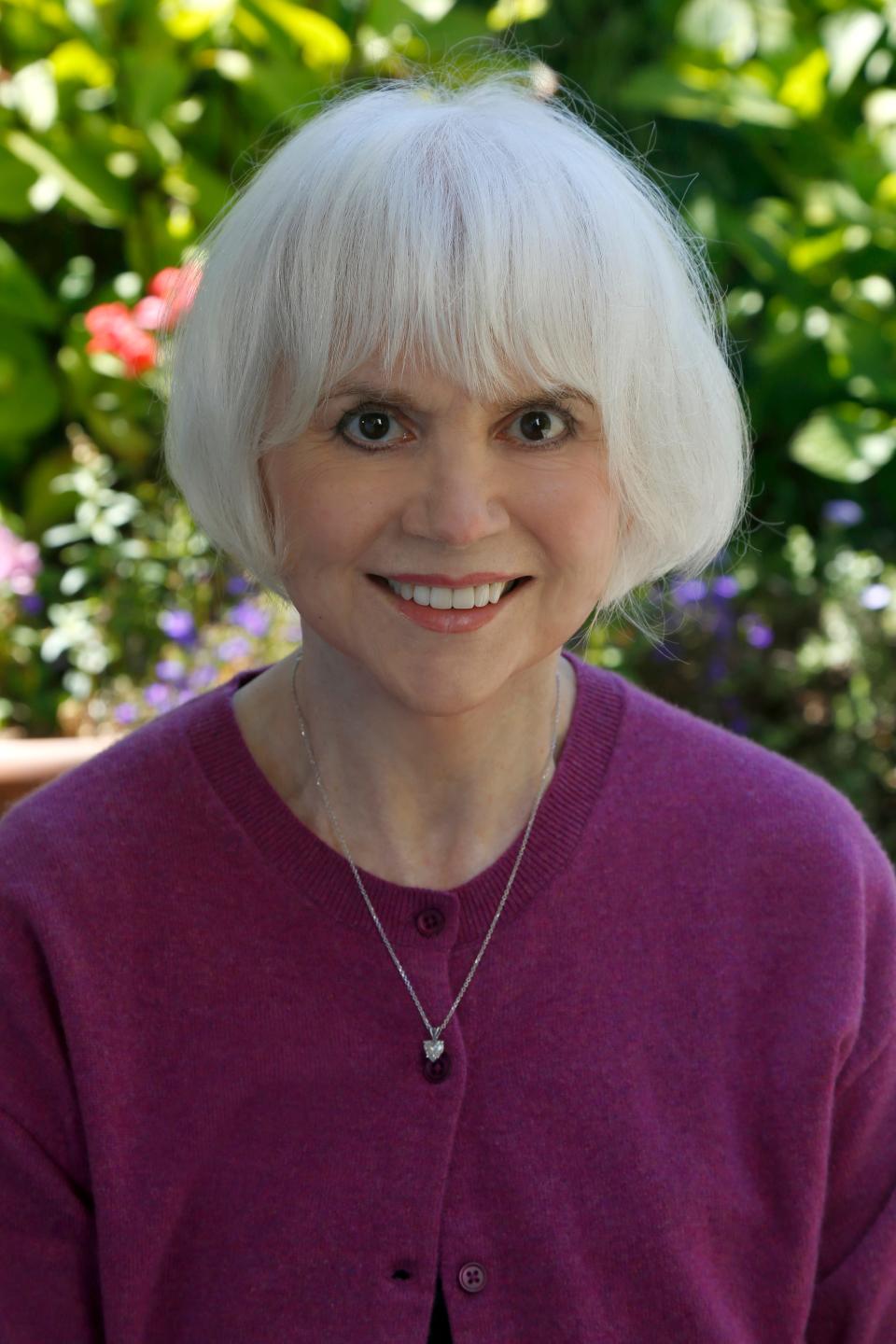'My Sonoran Desert': Linda Ronstadt on how Arizona borderlands culture shaped her new book
Linda Ronstadt's second memoir, "Feels Like Home: A Song for the Sonoran Borderlands," could just as easily have been a cookbook.
Her friend CC Goldwater, whose grandfather was Arizona politician Barry Goldwater, suggested a cookbook by the superstar musician could raise funds for research into Parkinson’s disease, which Ronstadt was diagnosed with in 2012.
"I said, 'I don't cook,'" Ronstadt said, with a laugh. "She said 'Oh, it's OK.'"
A plan was hatched to gather recipes from the Goldwaters, the Ronstadts and family friend Bill Steen, who supplies the photographs in "Feels Like Home."
There are some family recipes in "Feels Like Home," but over time, it morphed into a broader celebration of the Arizona legend's roots.
It's a departure from her first memoir, "Simple Dreams," which focused more on Ronstadt's musical career.

The Arizona Republic spoke to Ronstadt, who lives in San Francisco, about writing the book with Lawrence Downes, how growing up in Tucson shaped who she is and the importance of family.
From Tucson to the Rock Hall: Linda Ronstadt's lifetime love affair with music
The idea behind 'A Song for the Sonoran Borderlands'
How did the concept for this book take shape?
Lawrence wanted me to do a piece on "My Arizona." I said, "Let's do 'My Sonoran Desert,'" because it's a real region on both sides of the border and we get to go to Mexico. So we did and we had a really good time.
Having read both memoirs, I like that they're such different books despite covering some of the same territory.
Well, "Simple Dreams" is about my musical process. This is slightly about that, because my childhood was part of my musical process. Indeed, it was inseparable. But I just wrote about a different thing.
Could you talk about the importance of sharing this side of your story — your Mexican-American heritage and life in the borderlands?
We're really dealing with three different cultures that have the same roots. There's Mexico. There's the United States. And there's Mexican-Americans, who have been influencing people up here tremendously. Mexican food has taken over. You can get a taco anywhere. A Sonoran hot dog I don't think is so ubiquitous. But I eat them (laughs). I don't eat hot dogs and hamburgers. But a Sonoran hot dog is too good to pass up.
Different Drum: How a pop song by one of the Monkees made Linda Ronstadt a star

Linda Ronstadt's musical upbringing in Tucson
You often hear of successful musicians coming from musical families, but it seems your family may have been more musical than most.
In those days, mostly everyone played the piano. It was just a thing that happened with children. They got piano lessons and they practiced. There wasn't a radio. So you had to make your own music. And people did. It might not be really good. But I think everybody should have their own music they can play and sing. It's not gonna be Paul Simon. But we have Paul Simon for that. And he does a good job.
I love the passage where you write about your family trio performing in Cele Peterson's downtown dress shop.
They had an early-bird sale. It started at 6 in the morning. Cele and my mom were friends. And she thought it would give us a little boost. Which it did. People were fighting over cashmere sweaters or girdles or whatever women buy at those sales and we were singing in the background. (Laughs.)
Did you ever make it to Phoenix to perform before you moved to California as a teen?
We auditioned at some club, I can't remember what it was called. We did well and they offered us a job but my brother was going into the police department and he didn't think they would approve of it, him hanging around in a beatnik dive.
Interview: How Linda Ronstadt fought (and won) a battle to honor her Mexican heritage
Why 'Feels Like Home' was the perfect title for the book

I know it's a Randy Newman song that you've recorded more than once. But what appealed to you about "Feels Like Home" as a title?
Well, it just seemed like a good way to sum up what the book was about. And I think family is important, the things your ancestors have been through.
How did growing up in in the borderlands, traveling to Mexico from Tucson, shape you?
We were driving through a landscape that was typical for me. I thought everybody had cactus in their backyard. But it turns out they didn't. I've always been proud of my heritage and where I came from. I love Tucson.
Do you miss the desert?
Oh yeah. Developers plowed up a lot of desert land and didn't put houses on it or bother to put any ground cover. So there's just dust clouds constantly. The last time I drove to Phoenix from Tucson, I was in a dust storm for two hours.
And that fence they built. That stupid fence, which doesn't keep people out because people fly in. It cuts scars in the desert and causes erosion. It empties the water table because they're using all the water to make concrete. And it prevents animals from migrating. They need to migrate to live.
An American rancher will buy 2,000 acres in Montana and build his house right in the middle so that he's completely isolated. Mexicans build their house in a village and they share the grasslands.
Linda Ronstadt playlist: 25 greatest songs of all time, ranked
Ronstadt on the border wall: 'It's worthless. And it's cruel'

You grew up crossing the border to visit family on your father's side.
If you wanted to go farther south than Nogales, you had to have a permit, and the permit only lasted until such and such a date. So I would get the permit, go across and, coming back, it wasn't this incredibly long line of trucks where it takes hours to get through. You just showed your passport and you were there.
There was no point in putting up a fence. Some of those fences go right through ranchers' land. One of them goes straight through the Tohono O'odham reservation. It's preposterous. It cost a fortune. And it's worthless. And it's cruel. And they intensified the cruelty by separating families.
What do you think should be done about the situation on the border?
I think we should make it easier for them to work. They're not taking jobs away from Americans. They're doing jobs Americans won't do. They come up with a work visa, they earn money to send to their families, and then they go back. It couldn't be more ideal. More ideal would be paying them fairly, I suppose.
You write that much of the Tucson you knew in the '50s and '60s has been knocked down for blacktop and sprawl.
They destroyed a community to build (Tucson Convention Center), a so-called community center. And it was such a beautiful section. The buildings were adobe and right on the street. Now people pay big money to get a building like that, but it was for poor people. And after they tore it up, the two that were still available got rented to lawyers and money men. It's where rich people live now.
It's pretty clear in the book that despite not living in Tucson anymore, you still have a very strong connection to the area.
Well, I have tons of family and I go every year. A couple times a year sometimes. I love the Arizona Inn. I can't get enough of it.
This local music doc promises 'death, drugs and rock n' roll.' It delivers much more
'Feels Like Home: A Song for the Sonoran Borderlands'
"Feels Like Home: A Song for the Sonoran Borderlands" is available Tuesday, Oct. 4, where books are sold, from online retailers to independent bookstores, including Changing Hands Bookstore in Phoenix and Tempe.
Copies of the book will be available at Fox Theatre in Tucson
Reach the reporter at [email protected] or 602-444-4495. Follow him on Twitter @EdMasley.
Support local journalism. Subscribe to azcentral.com today.
This article originally appeared on Arizona Republic: Linda Ronstadt on the Arizona stories that shaped 'Feels Like Home'
